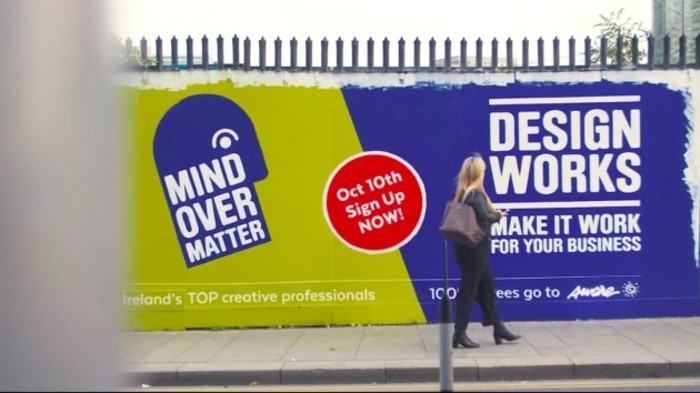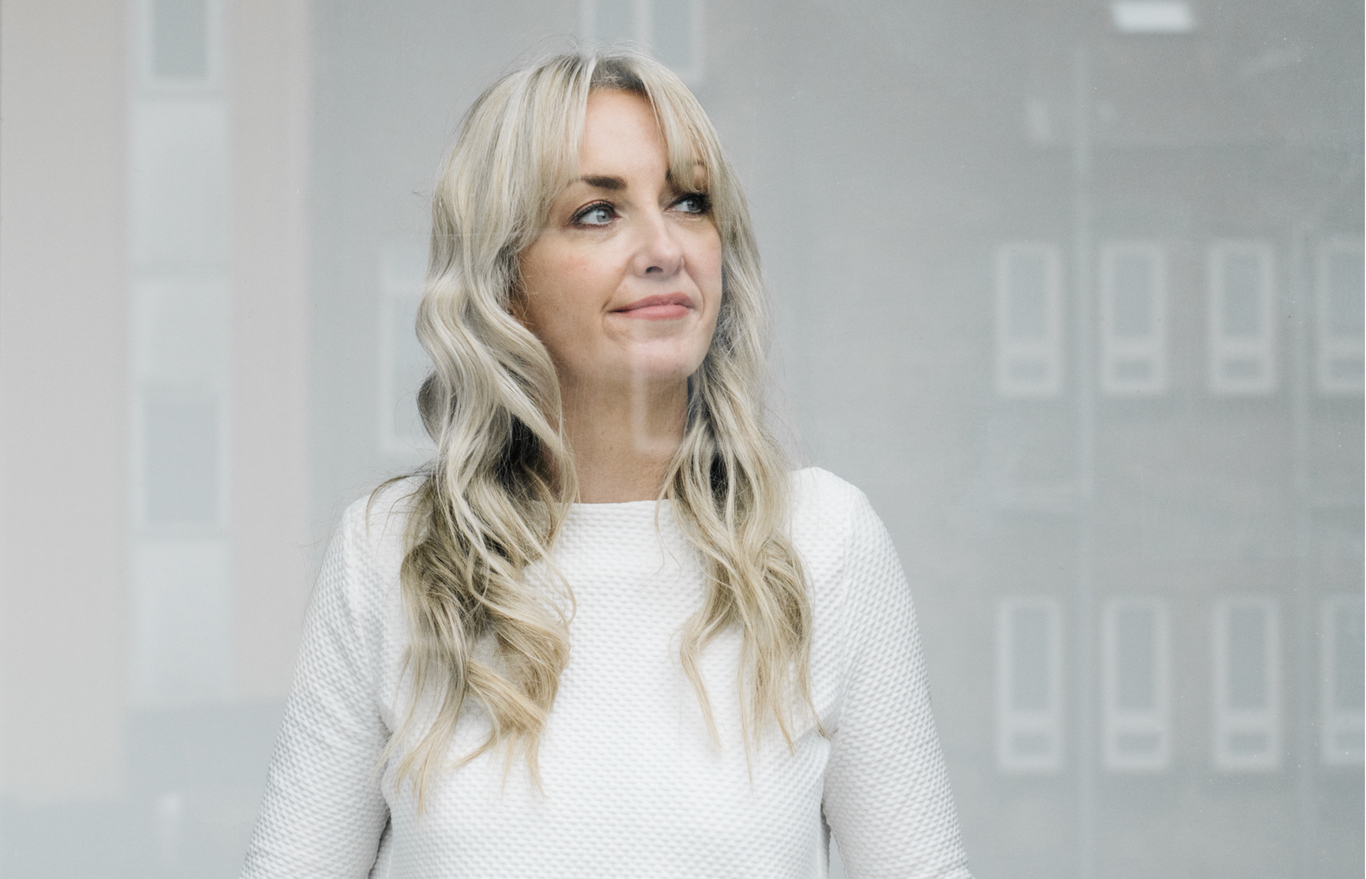'I left my first design job after 13 years - I'm still a bit emotional about it'
Kim Mackenzie-Doyle of the Irish Design Institute talks about Ireland’s ‘insane’ childcare costs.
KIM MACKENZIE-DOYLE HAS worked in the design industry for the guts of 17 years.
Currently the chief design officer at Irish smart thermostat company Hub Controls, she is also a board member and president emeritus of the Irish Design Institute.
The voluntary organisation will soon host the charity event, Mind Over Matter, connecting businesses with design consultants for one-on-one sessions on 10 October.
Nearly 200 designers are participating in the event, which features Fora as media partner, with all the proceeds to go to depression support charity Aware.
As part of our weekly question-and-answer series, we spoke to Mackenzie-Doyle about losing her ‘first job’ to the TV remote control, why designers shouldn’t hide behind their portfolios and why the State should learn to appreciate good design.
Here’s what she had to say:
What was your earliest or childhood ambition?
I actually really wanted to be a superhero, particularly Batman because he was pretty cool. But it always really annoyed me that Batgirl didn’t have any of the cool gear.
I think now, as a mum of two girls, I’m frustrated by superheroes back in the day because all the men got the spotlight. They had all the tools and got to save the day.
The female characters were always a bit lame and danced around and had a funky bike and that was about it.
My design career started when I was about six. I used to be the family remote control. Before we had handheld remote controls, I was the one running up and down to the telly pressing buttons to change the channel. That was kind of my first job.
When we got a new TV that came with a handheld remote, I was blown away.
I just couldn’t comprehend what was making the action on the remote control define the action on the telly, so I took it apart. This is what we’d now call reverse engineering. I just really wanted to understand how it worked.
I guess that was my first entry into the design world where I wanted to know more; I wanted to understand how something worked and why it worked.
On average, what time do you start work in the morning and what time do you clock off?
I typically start at 9am, but I wake up at about 6.30am because I’m running the Mind Over Matter campaign and have to get little people out to school.
I run till about 10.30pm or 11pm, so it’s long days. Any spare moment is really thrown at Mind Over Matter at the moment because we’re all volunteers behind the project.

I’m striving to make this event as successful as possible for the designers who have donated their time, not only on the day, but they’re also promoting themselves, which is a job in itself.
We want it to be a quality event for the businesses too because this could be their first interaction with a designer.
All of the proceeds are going to Aware, so it’s creating a platform where designers can use their skills and talent to give back, which is really good for your own well-being.
What’s the toughest work-related decision you’ve ever had to make?
I think leaving Design Partners. I was the first female designer there, and I worked there for 13 years. I really grew up there. I made lifelong friendships and still hold the company very dear to my heart.
I had clients in Sweden and was travelling to China and the US frequently, but I also had two very young daughters and the travel was really taking a toll on my family.
My husband has a family business, so we made a family decision that one of us needed to be on the ground a little bit more. I took the decision to leave, and that was a massive moment for me in my career, but one that was very necessary for the family.
Even looking back, I’m almost a little bit emotional about it. I still visit them frequently and they’re an amazing team.
What’s the one work skill you wish you had?
I’ve always had a big issue with public speaking and it’s still something I’m always working on. I would love to have much more confidence in that area.
I think, as a designer, you invest so much in the actual work that you don’t actually give yourself enough time to verbally prepare a pitch or presentation. You’re always working every available second to the deadline.
I’m my own worst enemy and judge myself quite harshly, but I don’t think I would deliver the pitch as successfully as the work itself.
I’m not even sure it’s even a time-management thing. It’s about maybe paying more attention to the delivery, and I would appreciate the skill set to just off-the-cuff absolutely fly during the presentation.
What’s the biggest rip off and best value in Ireland?
Childcare is insane and I think it’s really limiting. I think it has a huge impact on parents.
It’s really detrimental to gender balance. For some families, it just does not make sense for both parents to work. The typical choice in a family is that the woman’s career should be to stay at home with the kids because typically the man earns more.
When it comes to leave, women get six months maternity leave. Men sometimes get a week or two paternity leave. I think that’s a massive issue in itself.

When a female goes to a job interview, employers always have the issue of maternity leave in the back of their mind, whereas it’s never an issue for the guy. We need to give both parents the choice to stay at home with the kids.
In terms of good value, I think there’s probably a misunderstanding that design services are really costly. I think they’re incredible value in Ireland.
When companies do invest, they get a massive payback. There simply isn’t that appreciation of what design can bring to the economy to industry to society.
What’s the one piece of advice you would give to someone starting out in your industry?
I’d say show up. Don’t rely on emails and portfolios and LinkedIn. I think people want to work with people and designers should never discount what they bring to the table personality-wise.
In a design consultancy or agency, they want to make sure they can stick you in front of the client and you can hold your own.
If you can’t knock in and say, “I’m looking for a job, this is what I can do for you and I’d love to be apart of the team,” then I think you’re on the back foot. I think we need to remember our social skills and not just exist in the online world.
What bad work (or business) habit have you had to kick?
I have a very thin filter. I always appreciate direct feedback because I can probably take it at this stage, but I don’t think everybody can.
I think you have to deliver feedback, obviously not always in a positive way, but in a productive way. I am known for being quite direct and I have a lot of expectations that a lot of people can take what I can take and that’s not always the case.
I have to be more measured in my communication, especially with more inexperienced staff.
What do you think is the biggest challenge for your industry?
Communicating the value of design. I think Ireland hasn’t formed a clear perception of what design is.
A lot of the money is going towards supporting arts and crafts, and design is constantly getting muddled with those areas. I think what we really need to do is communicate what design can do for industry.
It’s not just aesthetics, it’s function. It’s how people interact with each other, with technology, with everything ,because design is just about everywhere.
I think it’s fundamentally necessary that the government adopts design to create policies so they’re more future-proofed and tangible for communities and the issues they’re facing.
If you threw a group of designers at the health system, the impact would be extreme.







